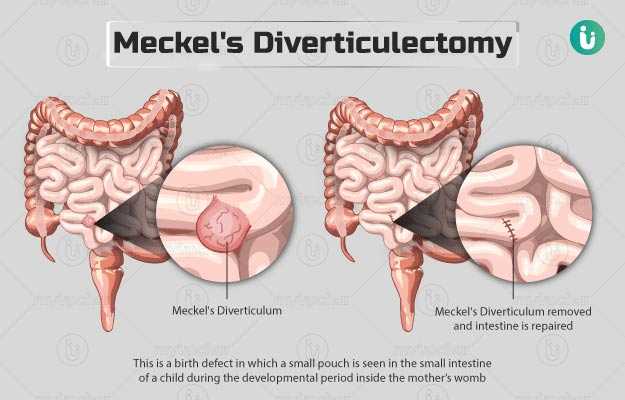Summary
Meckel’s diverticulectomy is the surgical removal of Meckel’s diverticulum (MD), an abnormal pouch that forms in the wall of the small intestine during the developmental phase of a fetus inside the mother’s womb. The pouch develops close to the junction of the small and large intestine and causes troublesome symptoms such as bleeding, blood in stool, constipation, and vomiting. Surgical removal of the pouch provides relief from the symptoms. MD does not reoccur once it is removed. Meckel’s diverticulectomy is performed by either of the two methods, namely open or laparoscopic. The former involves one large cut on the abdomen while the latter involves three to five small cuts. The surgery requires a hospital stay of around one to seven days.






































